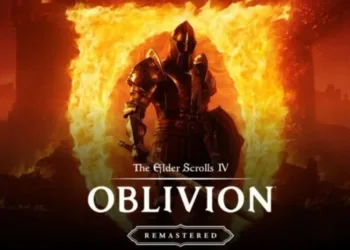David Cronenberg’s latest film, The Shrouds, now in theaters via Sideshow and Janus Films, draws from deeply personal experiences without crossing into autobiography, the director insists. The film follows Karsh, a Canadian tech entrepreneur portrayed by Vincent Cassel, who creates a cemetery where loved ones can monitor real-time decomposition through an app-connected burial shroud. The concept stems from Cronenberg’s own grief after the death of his wife, Carolyn, in 2017.
Despite surface parallels between Cronenberg and his protagonist — including Karsh’s distinctive hairstyle and minimalist attire — the filmmaker maintains a sharp distinction between personal experience and fiction. “Once I start writing the screenplay, it becomes fiction and I’m creating fictional characters who are not me,” Cronenberg said in an interview.
The Shrouds explores themes of mourning, love, technology, and existential longing. The film’s origin traces back to Cronenberg’s visceral reaction to losing his wife. He described a strong urge to remain connected to her body after death, a feeling that translated into Karsh’s technological innovation in the film. “I really did want to get into the coffin with her,” Cronenberg admitted, describing the emotional genesis behind the story.
Cronenberg resists labeling The Shrouds as therapy. Instead, he views filmmaking as a way to organize his responses to life events without necessarily changing his outlook on them. “Making movies is the way that I deal with the world and experience it,” he explained.
The project, initially conceived as a potential Netflix series, would have seen Karsh attempt to expand his graveyard concept across different countries, facing political and cultural resistance along the way. Though the series format did not materialize, elements of global confrontation and paranoia remain embedded in the final feature.
Cronenberg’s reflections on technology extend beyond the narrative. He openly embraces digital filmmaking, rejecting nostalgia for traditional film formats. “Film is a nightmare to work with,” he said, citing difficulties with editing and processing. Digital, he argued, provides far greater creative control, describing analog film’s continued use as “delusional.”
This pragmatic view of technological change also informs his attitude toward how audiences consume cinema today. Cronenberg expressed no reservations about viewers watching films on smartphones, suggesting that the essence of cinema transcends the medium of delivery. His personal frustrations with contemporary theatrical experiences — including technical malfunctions and audience distractions — have only reinforced his comfort with the evolving ways audiences engage with film.
Throughout his career, Cronenberg has often been associated with terms like “body horror” and “cyberpunk,” labels he regards with some skepticism. He distanced himself from the notion of genre classification altogether, viewing it as primarily a marketing tool rather than an artistic framework. “I don’t think about genre at all,” he said. “It’s not something that gives me anything to work with as an artist.”
His discomfort with being characterized as a genre filmmaker echoes in his response to being described as a “legend” or the “godfather of cyberpunk.” For Cronenberg, daily life remains grounded and unglamorous. “I go to the corner store; I buy milk and bananas. I carry them back to my house,” he said. “That’s my life.”
Cronenberg’s influence, however, is widely acknowledged among contemporary filmmakers. Directors such as Coralie Fargeat (The Substance) and Julia Ducournau (Titane) have cited him as a source of inspiration. While he expressed appreciation for these acknowledgments, he emphasized that his primary focus remains on creating work that reflects his own understanding of existence.
Currently, Cronenberg is working on adapting his novel Consumed into a screenplay, collaborating again with producer Robert Lantos. Whether the project moves forward remains uncertain, with financing challenges posing potential obstacles. The adaptation process marks a new venture for Cronenberg, who noted that writing the novel felt surprisingly akin to directing, requiring him to envision costumes, lighting, locations, and dialogue.















































